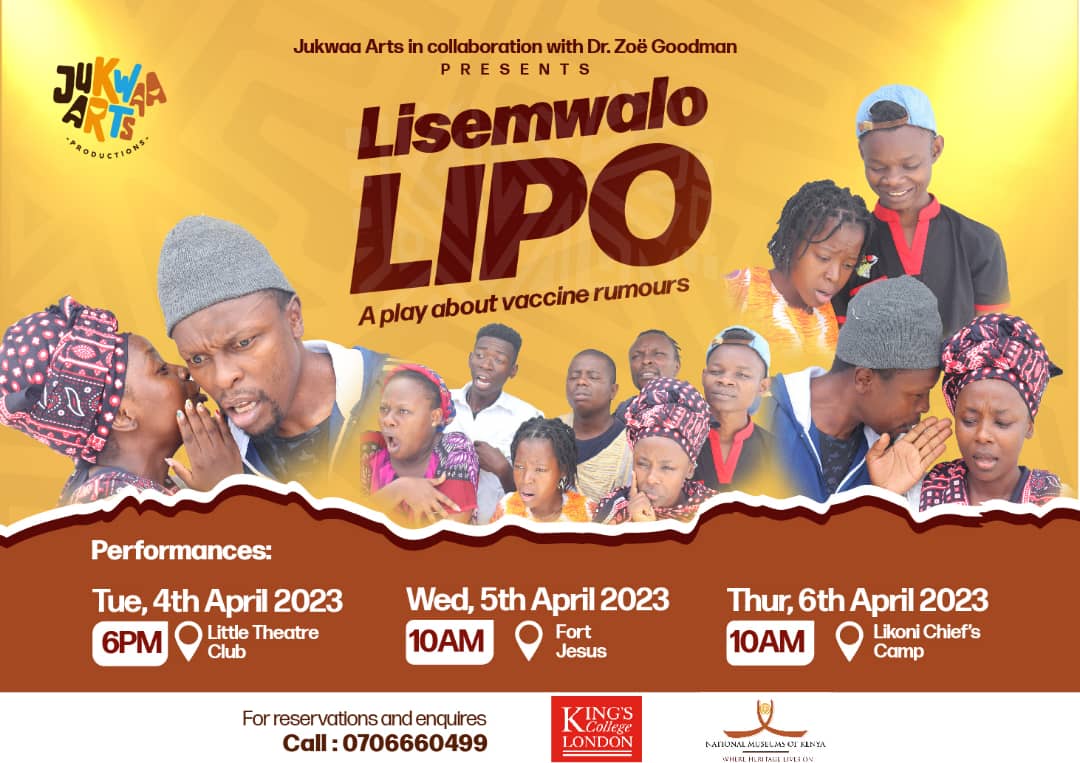Objectives:
Funded by King’s College London, our goal was to create a space for dialogue about Covid vaccines through participatory theatre – through the medium of theatre, we wanted to create an offline space for dialogue and exchange about this contentious health issue.
Our goal was not to convince anyone to get vaccinated. Instead, the performances and facilitated discussions offered a platform for ordinary Mombasans to share their views on Covid vaccines and the rumours surrounding them.
Discussions about vaccine rumours can be heated and challenging. Most people are extremely pro- or antiv-vax. Knowing that vaccines are likely to only become more politicized in our ‘age of pandemics’ we wanted to experiment with theatre as a medium for holding space for these difficult important conversations.
Achievements:
The three performances of Lisemwalo Lipo were attended by over 400 Mombasans. The discussions that followed each show were animated forums for public debate. Audiences shared highly divergent views on vaccination, and raised issues that are rarely talked about in public in Kenya, such as the power of religious leaders.
Policy roundtables following these performances stressed the need for healthcare providers and others to take vaccine rumours seriously, as important sources of information about enduring experiences of injustice and inequality.
A short clip from the Lisemwalo Lipo film will be posted here soon! It has been shown in Kenya, the UK and Denmark and will be submitted to international film festivals in 2024.
If you are interested in arranging a screening to create a space for discussion about vaccines in your community, please click here to send us email


What Next?
One of the key findings that emerged from this pilot was how a lack of care shapes vaccine refusal. During the post-performance discussions, Mombasans frequently expressed their distrust of vaccines within a wider landscape of being fundamentally uncared for by people and institutions at all levels – including the state, medical professionals, Western governments and corporations. Audiences were acutely aware of how issues of wealth, race, gender and religion shape who gets adequate care and who doesn’t.
We began to wonder: how might we respond to these pervasive experiences of carelessness and build more equitable access to care for all?
We are now building a multi-year project to explore the issue of care. See more information and our crowdfunding campaign here.



